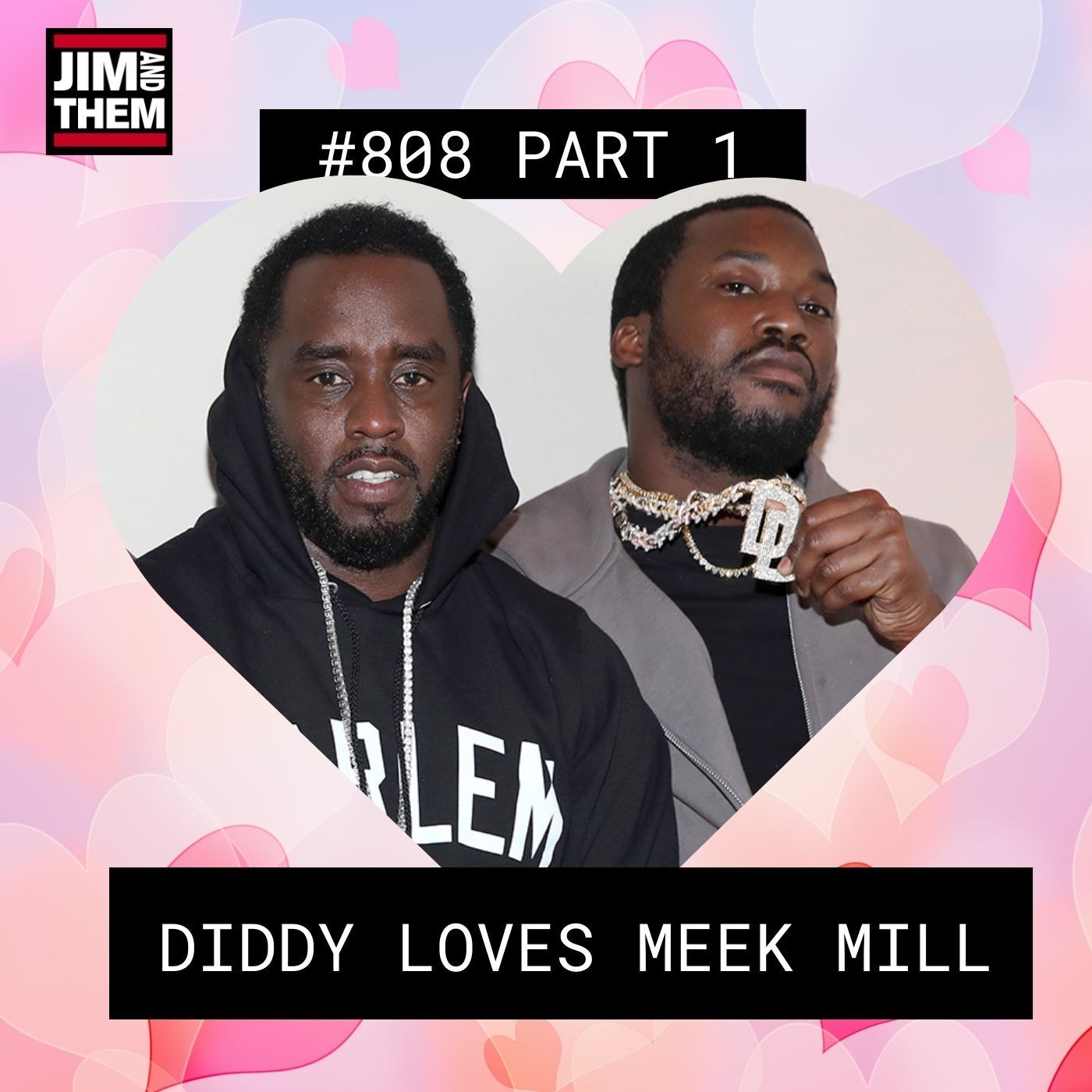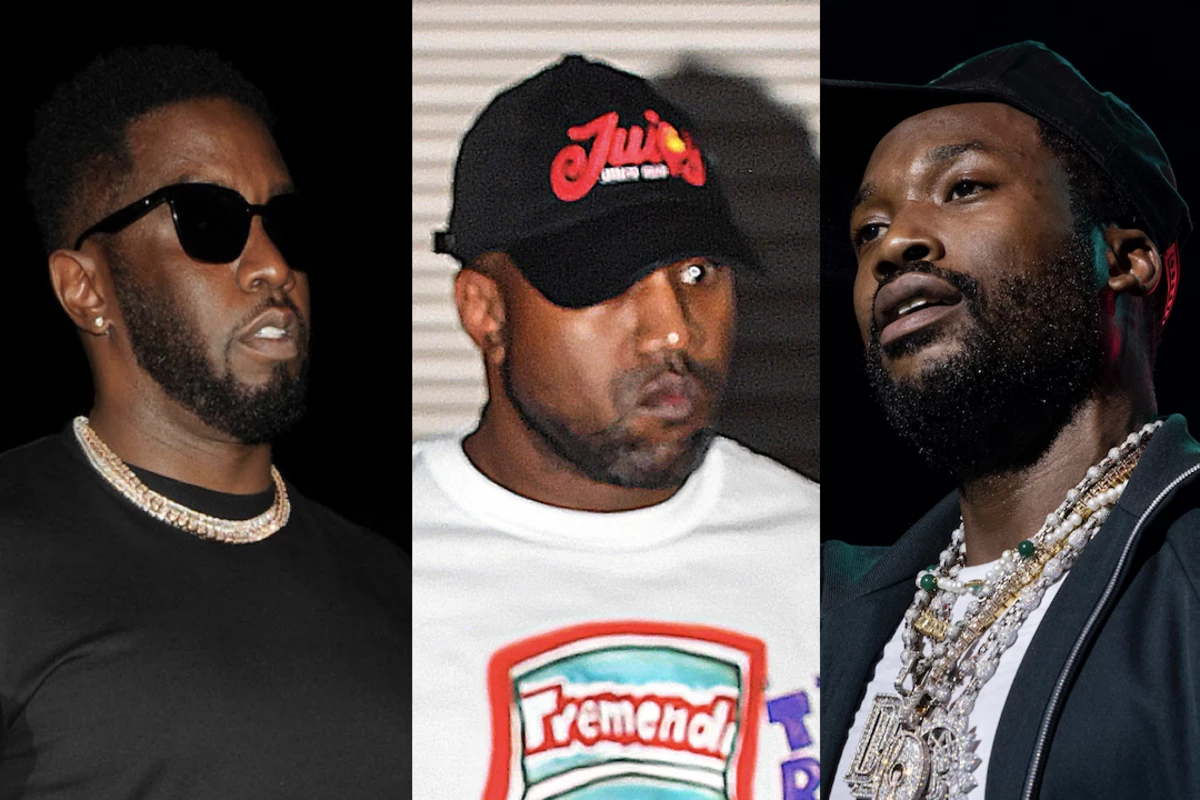When conversations swirl around figures like Meek Mill and Diddy, perhaps regarding an audio piece or simply public discussions, it often brings up ideas about strength, influence, and personal character. It's pretty interesting, actually, how certain words get tossed around in these moments, carrying a lot of weight without us always stopping to think about what they truly mean. Sometimes, the very terms we use to describe people or situations have roots that go way back, offering a different way to look at things than what we might first assume.
This kind of public chatter, you know, it's almost a chance to pause and consider the deeper meanings behind the language we use. We hear words like "meek" and they can bring to mind a whole range of feelings or stereotypes. But is that what the word always meant? Or have our modern ways of speaking changed its true sense over time? It's a bit like trying to piece together a puzzle where some of the older parts don't quite fit the newer picture.
So, with all the talk about what goes on in the public eye, maybe it's a good moment to really dig into a term that appears quite often in old writings and, frankly, seems to cause a little confusion today. We're going to explore the idea of being "meek," looking at its original spirit and how that might offer a fresh outlook on what it means to be a person of substance, even when facing public scrutiny or widespread discussion.
- Grace Charis Onlyfans.https
- Did Cameron Diaz Date P Diddy.https
- Is Will Smith Alive 2025.https
- Nikki Catsouras Death.https
- King Von Dead Body.https
Table of Contents
- What Does Being "Meek" Truly Suggest?
- The Ancient Roots of Meekness in the Meek Mill Diddy Audio Conversation
- Is "Meek" the Right Word for the Original Idea?
- How Translations Shape Our View of Meek Mill Diddy Audio Discussions
- What Did Early Writings Say About the Meek?
- The Wisdom of Old Texts and the Meek Mill Diddy Audio Context
- Can a "Meek" Person Still Be Strong?
- Power and Restraint – A Meek Mill Diddy Audio Perspective
What Does Being "Meek" Truly Suggest?
When we hear the word "meek," many of us might picture someone who is weak, perhaps a bit timid, or easily pushed around. This common picture, however, doesn't quite match the deeper meaning found in older writings. For instance, a very famous line from Matthew 5:5 tells us that those who are "meek" will come to possess the earth. That's a pretty big promise, isn't it? It suggests a strength, or a kind of influence, that goes far beyond simply being quiet or shy. So, what exactly did the original language mean by this word? It's a question that, quite frankly, gets at the heart of how we understand personal qualities.
The core idea behind "meek" in the original Greek is something rather different from what we might think. The word is "πραΰς" (praus), and it describes a person who has power or strength but chooses to hold it back, to use it with gentleness and control. Imagine a powerful horse, one that could run wild and cause a lot of trouble, but instead, it is trained and responsive to its rider's gentle touch. That horse is "praus." It's not weak; it's incredibly strong, yet it channels its might with purpose and calm. This contrast is, in some respects, quite striking when you compare it to our modern understanding.
This concept of "praus" suggests a controlled power, a quiet strength that doesn't need to show off or dominate. It's about having the capacity to act with force, but choosing instead to respond with patience and kindness. This person is not easily provoked, nor do they rush into anger. They possess a deep inner calm that allows them to remain steady even when things get tough. This understanding, you know, could completely change how one views individuals who appear soft-spoken but carry significant weight in public discussions.
- Steve Harvey Political Views 2025.https
- Breckie Hill Onlyfans.https
- What Ethnicity Is Kari Lake.https
- Did Will Smith Die.https
- Miray Daner Religion.https
The Ancient Roots of Meekness in the Meek Mill Diddy Audio Conversation
Considering the discussions that sometimes arise, like those around a Meek Mill Diddy audio situation, the idea of "meekness" from these old texts offers a truly different way to look at things. It's not about being a pushover; it's about a disciplined power. This person isn't easily swayed by emotion, nor do they react impulsively. Instead, they think things through, responding with a thoughtful quietness rather than a loud outburst. This kind of inner composure, it seems, would be quite valuable in any high-profile exchange.
The wisdom found in these ancient words suggests that true strength isn't about being loud or aggressive. Rather, it's about possessing a firm inner core that allows for a gentle, yet powerful, presence. This kind of person, in a way, commands respect not through force, but through their steady and controlled demeanor. When we hear about public figures, it's often the outward displays of power that catch our attention, but perhaps the real influence lies in this quieter, more disciplined approach.
Furthermore, this older sense of "meekness" speaks to a person who is not only calm but also deeply aware of their own place. They don't have an inflated sense of self, nor do they seek to put others down. Instead, they approach situations with a sense of humility, which, as a matter of fact, is often connected to the idea of being "meek" in many older writings. This blend of strength and quiet self-awareness is, arguably, a quality that fosters deeper, more meaningful interactions, even in the most public of settings.
Is "Meek" the Right Word for the Original Idea?
This brings us to a really interesting point: is "meek" a good way to translate the original Greek word "praus"? For many people today, "meek" carries a slightly old-fashioned or even a negative feel, suggesting weakness or a lack of spirit. But as we've seen, "praus" was used to describe something quite powerful and controlled, like a well-trained war horse. So, it's fair to ask if our modern English word truly captures that full, robust sense. It seems, in some respects, that a lot gets lost in translation.
When translators worked on these ancient texts, they had to pick words that made sense to people at the time. Over the centuries, though, the meaning of English words can shift. What "meek" meant hundreds of years ago might be a little different from what it means now. This change in meaning can lead to a slight misunderstanding of the original message. It's a bit like trying to understand an old song with new ears – the tune is there, but the feeling might be altered. This is why, arguably, some scholars suggest alternative words to convey the true spirit of "praus."
Some scholars, for instance, have suggested that the Hebrew word often translated as "meek" might be better understood as "miserable" in certain contexts. This idea, put forward by thinkers like Jordan Peterson, suggests a different angle entirely. If the word refers to someone who is in a state of suffering or hardship, it changes the entire picture of who inherits the earth. It implies that those who have faced difficulties, who are perhaps vulnerable and in need of protection, are the ones who will find a lasting place. This perspective, you know, really makes you think about the layers of meaning in these old texts.
How Translations Shape Our View of Meek Mill Diddy Audio Discussions
The way words get translated, especially in influential writings, can genuinely shape how we understand important concepts, even when we talk about public figures or a Meek Mill Diddy audio situation. If the word "meek" makes us think of someone weak, then the idea of them inheriting anything seems odd. But if "meek" means someone with controlled strength, someone who is patient and not easily angered, then the promise of inheriting the earth takes on a completely different, more logical meaning. This difference in interpretation, it seems, can really alter our perspective.
Consider how different English versions of these old writings use both "meek" and "humble." This shows that even professional translators have grappled with finding the perfect word. "Humble" often implies a low view of oneself, while "meek" as "praus" implies controlled power. These are related, but not identical. The nuances matter, particularly when trying to grasp the full message. It's almost as if each translation offers a slightly different window into the original thought, and each window shows a unique view.
So, when we come across words like "meek" in modern conversations, especially those that gain a lot of public attention, it’s worth remembering that their meaning might be richer and more complex than our everyday usage suggests. The original sense of "praus" points to a person who is not only gentle but also strong, patient, and capable of holding their power in check. This subtle but important distinction, you know, could help us interpret public discussions with a deeper sense of clarity and understanding.
What Did Early Writings Say About the Meek?
Beyond Matthew, many other old writings speak about the "meek," providing even more clues about what this quality truly means. Psalm 22:26, for example, tells us that "the meek shall eat and be satisfied." This phrase suggests a sense of contentment and provision for those who possess this quality. It’s not about being deprived or going without; rather, it implies a kind of blessing and fulfillment. This is, quite frankly, a comforting thought.
Then there’s Psalm 37:11, which repeats the promise: "but the meek shall inherit the earth; and shall delight themselves in the abundance of peace." This adds another layer, connecting meekness not just to receiving something, but also to experiencing deep peace and happiness. It paints a picture of a person who is not constantly striving or fighting, but rather finds joy in a calm and settled existence. This idea of finding peace through meekness is, in some respects, a powerful one.
Another intriguing example comes from Numbers 12:3, which describes Moses as "very meek." This is a significant detail because Moses was a powerful leader, someone who stood up to rulers and guided a whole people. If Moses was considered "meek," then the word clearly doesn't mean weak or ineffective. It must mean something else entirely – perhaps a person who, despite having immense power and authority, remains humble and responsive to a higher purpose. This is a bit of a paradox, isn't it? A strong leader who is also described as meek.
The Wisdom of Old Texts and the Meek Mill Diddy Audio Context
These various old texts, when read together, offer a consistent picture of what "meekness" truly involves. It's a quality that brings satisfaction, peace, and even a form of inheritance. It's associated with leaders like Moses, who, despite their authority, showed a remarkable capacity for patience and a lack of quick anger. This is very different from the common, almost negative, ideas about meekness that might come up in public discussions, like those around a Meek Mill Diddy audio story.
The writings also touch on the idea that the "meek" are those who are not inclined to violence, those who might be vulnerable and in need of protection. Yet, they are also the ones who will seek out a higher power or a spiritual kingdom to find security. This suggests a reliance on something beyond their own physical might, a recognition that true safety comes from a different source. This understanding, you know, adds a spiritual dimension to the concept of meekness.
So, the wisdom from these ancient pages tells us that being "meek" is not about lacking strength or being a pushover. Instead, it’s about having a controlled strength, a patient spirit, and a deep sense of inner calm. It's about finding satisfaction and peace, and it’s a quality that even powerful figures can embody. This perspective, you know, could offer a fresh lens through which to consider any public figure, or any widely discussed topic.
Can a "Meek" Person Still Be Strong?
The question of whether a "meek" person can also be strong is, arguably, one of the most important aspects of this discussion. As we've explored, the original Greek word "praus" certainly suggests that strength and meekness are not opposites. In fact, they are deeply intertwined. A truly "praus" individual possesses a controlled power, a disciplined will that allows them to act with gentleness even when they have the capacity for force. This is, in some respects, a very sophisticated form of strength.
Think about the example of a person who is "slow to wrath," as mentioned in some old writings. This individual "abounds in wisdom," while someone with an "impatient spirit is very foolish." This directly links patience and a calm disposition with true understanding and intelligence. It's not about being unable to feel anger, but about choosing not to let anger control one's actions. This kind of self-mastery, you know, requires immense inner fortitude.
Jordan Peterson's interpretation of Matthew 5:5 also touches on this idea of controlled strength. He suggests that the verse means: "He who has a sword, and knows how to use it, but keeps it sheathed shall inherit the earth." This image perfectly captures the essence of "praus" – the capacity for power is there, the skill to use it exists, but the choice is made to restrain it. This isn't weakness; it's a profound display of self-control and wisdom. It's, as a matter of fact, a powerful way to look at the idea.
Power and Restraint – A Meek Mill Diddy Audio Perspective
This idea of power held in check, of strength expressed through restraint, is a concept that offers a lot to consider, especially when thinking about public conversations or even something like a Meek Mill Diddy audio piece. In a world that often values outward displays of force or dominance, the ancient understanding of "meekness" provides a compelling alternative. It suggests that true influence comes not from overpowering others, but from a quiet confidence and a controlled demeanor.
A person who is "meek" in this original sense is not someone who avoids conflict because they are afraid. Instead, they approach challenges with a calm and measured response, choosing their words and actions with care. They understand that lasting impact comes from a place of inner peace and thoughtful consideration, rather than impulsive reactions. This kind of personal power, you know, is far more enduring than any fleeting display of aggression.
So, when we hear discussions that might involve public figures and their actions, it's worth remembering that strength comes in many forms. The ancient idea of "meekness" teaches us that immense power can be found in quietness, in patience, and in the conscious choice to wield influence with gentleness rather than force. This perspective, you know, could truly reshape how we perceive strength and leadership in our modern world.
- Meidas Brothers Net Worth.https
- Keisha Combs.https
- Now Gg.https
- Filmyfly Filmy
- Anjali Arora Viral Video


